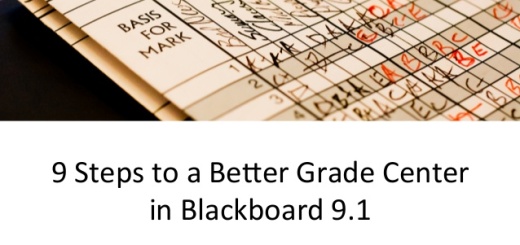Can using a tool like Google+ lead to the death of the LMS?
This summer I have enjoyed using Google+ in place of Blackboard‘s Discussion tool in two courses that I am teaching. Students were able to interact with each other, chat with participants in another course, and even learn with real-world education experts like +Holly Rae Bemis-Schurtz and +Larry Ferlazzo. An LMS (e.g. Blackboard) “protects” students by letting them only interact with those who are taking the same course.
I relied on Google+ to communicate with students so much that I failed to notice when links to my Blackboard courses were accidentally deleted one morning due to a system error. I only found out when a student reported that she could not submit homework because the course was gone from her Blackboard listing. Would my students have even missed Blackboard had it not been for the fact that they needed to post links to their work in the gradebook? (Don’t worry, the IT folks were able to bring back my courses so my students were able to finish uploading their assignments.)
For years, +Steve Wheeler, +Graham Attwell, and others have discussed the death of the LMS, or as they call it in Europe, the Virtual Learning Environment (VLE). They see the LMS as top-down structure that stifles student and faculty creativity, and when the course is over everything is gone, including the community. In its place, they advocate for a Personal Learning Environment (PLE), where students control the digital learning tools they use. In a PLE, students control their own content and can continue to learn with their professor and peers even after the course is over.
Up until now I would have argued that many professors and students are not ready for PLEs. Instructors would struggle to keep up with the tools advanced students choose to use. Novice students would struggle to find ways to collaboratively construct knowledge with their technically advanced peers. However with Google+, I saw all students share articles, videos, docs, and their blog posts… pretty much anything they wanted from whatever tool they used to create it. Students gave each other feedback, and drew others into conversations, all without any coaching or training from me.
There is still plenty of room for improvement, such as an easy way to reference a previous post and a good home for static content. And oh yes, and we can not forget to include a secure place to access grades. As a professor, I think I could give up a lot of autonomy to students if we just agreed to collaborate using Google+. Heck, I might not need Blackboard at all. What do you think?



